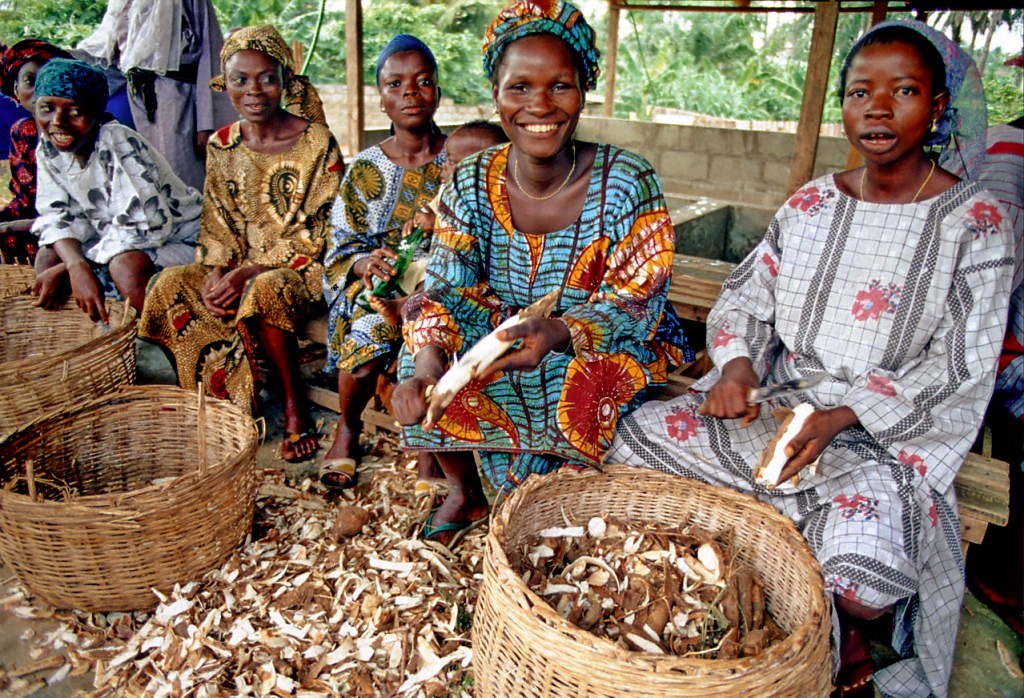Women’s Health In Nigeria

Women’s health is a branch of medicine that focuses on the diagnosis and treatment of conditions that affect women’s physical and emotional wellbeing. The promotion of women’s health greatly improves the quality of life for women and children globally. Unfortunately, women in the West African country of Nigeria experience an especially low quality of life. Luckily, several organizations in Nigeria are targeting an improvement in women’s health.
Women’s Health and Multidimensional Poverty in Nigeria
According to the Oxford Poverty and Human Development Initiative (OPHI), multidimensional poverty includes poverty in both the economic and social dimensions. It follows that health and wellbeing are significant factors in each of those dimensions. In the 2019 Human Development Report, Nigeria ranked 161 out of 189 countries. Moreover, Nigerians had an average life expectancy of 54 years.
Nigerian researchers Yetunde Abosede Zaid and Samuel Popoola attribute the low quality of life for rural women in Nigeria to poverty, hunger, diseases, a lack of drinking water and shelter. They also cite low income and access to medical attention and information as factors of poor wellbeing. For example, Zaid and Popoola reference a study that concludes that more rural women could become wage earners and boost their personal wellbeing if they began small businesses selling the produce from their farms. However, lack of access to information about running a small business stops them from doing that. In fact, since most rural women in Nigeria cannot read, they need alternatives to printed materials to get that key information. The following three organizations are working to improve these trends in women’s health in Nigeria.
Centre for Women’s Health and Information
Founded in 2003 in Lagos, the Centre for Women’s Health and Information (CEWHIN) promotes the fundamental rights of Nigerian women and girls. To do this, CEWHIN focuses on research, capacity building and advocacy.
One of the nonprofit’s initiatives includes the Women’s Development Action Network. This project empowers disadvantaged women by providing them with educational scholarships. This is because better-educated women better understand their reproductive health rights. To date, the project has supported 50 students, including four at the university level.
Women’s Health Solutions in Nigeria
Next, the Wellbeing Foundation Africa (WBFA) seeks to improve health outcomes for women, infants and children. Founded in Lagos in 2004 by the philanthropist Toyin Ojora Saraki, the WBFA sponsors several national projects. One of these, MamaCares360, empowers mothers by providing health information and education before, during and after pregnancy. Currently, MamaCares 360 runs in 29 locations in five southwestern Nigerian states, and it has a cumulative daily attendance of over 2,000 women per state with more than 230,000 repeated contacts.
Women’s Rights and Health Project
Third, the Women’s Rights and Health Project is a nongovernmental nonprofit that promotes reproductive health and rights for women, young people and communities. Founded in 2007, WRAHP applies practical interventions to support community health in southwestern Nigeria. One such intervention promotes the early detection of breast, cervical and prostate cancer for communities in Lagos State. To date, it has helped over 1,300 people obtain screenings.
Looking Ahead to Improve Women’s Health in Nigeria
Each of these organizations targeting women’s health in Nigeria works a little differently, but each is making progress to improve the health and quality of life for Nigerian women, children and young adults.
– Ozi Ojukwu
Photo: Flickr
